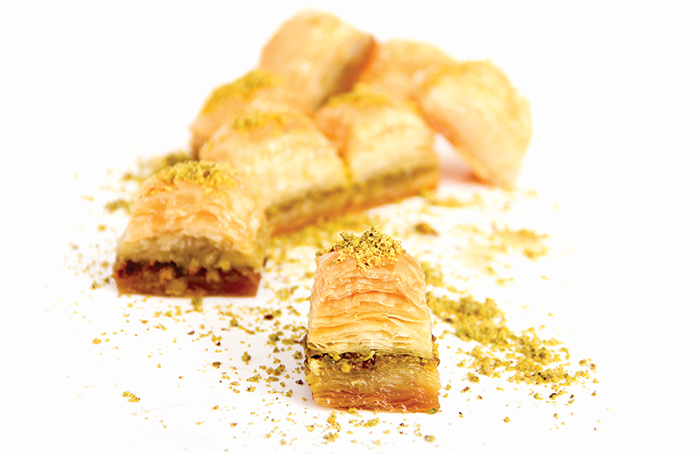A New Starch Equips Baklava for Global Travel
To export their old-world delicacy worldwide, Turkish confectionary Güllüoglu needed a new recipe for its incredibly delicate desserts.
January 01, 2015
For six generations, Güllüoglu has produced world-class baklava in Istanbul, Turkey. Crafted with layers of paper-thin phyllo dough and the purest honey, butter and pistachios, their family recipe requires a complex, precise process.

[image caption] Layer upon layer of flaky phyllo dough is stacked with syrup and crushed pistachios to create the beautiful, artistic dessert.
In 2010, the company announced plans to expand their business to far-off markets in the US, Europe and the Middle East. But to preserve their centuries-old recipe, Güllüoglu insisted on producing each piece in its Turkish headquarters, then distributing the batches to franchises worldwide.
The confectionary turned to Cargill, leaning on their expertise in product innovation and responsible supply chains. Working with Güllüoglu’s baklava masters, Cargill developed an innovative blend of starches that, when sprinkled on the phyllo, achieved the perfect moisture level to protect the fragile baklava and prevent tearing during transit.
The new starch enabled Güllüoglu to ship the confection with confidence. Soon, franchises opened their doors in cities like New York, Los Angeles, Brussels, Tripoli and Riyadh—giving consumers the authentic, intact baklava that once required a trip to Istanbul.
